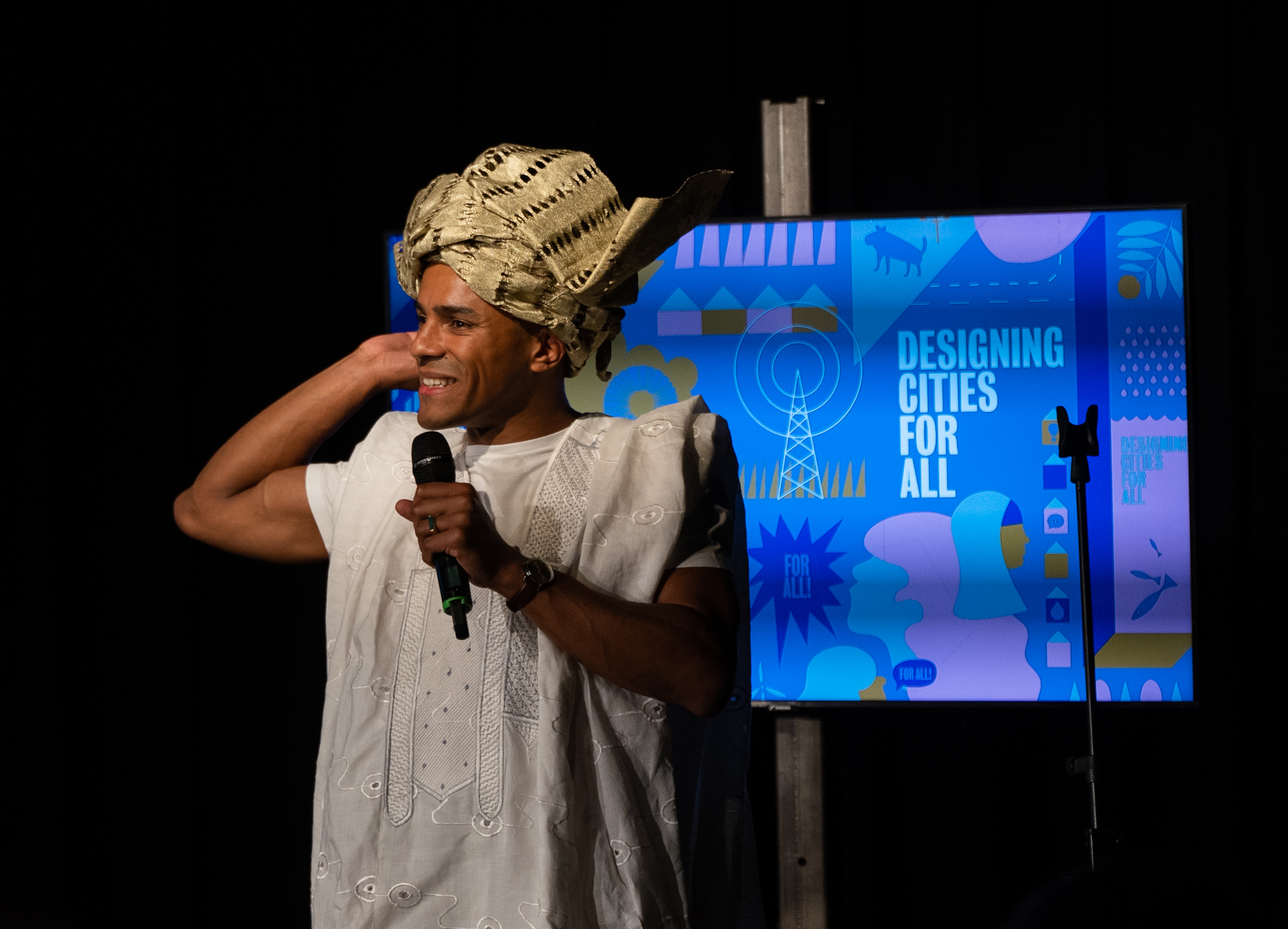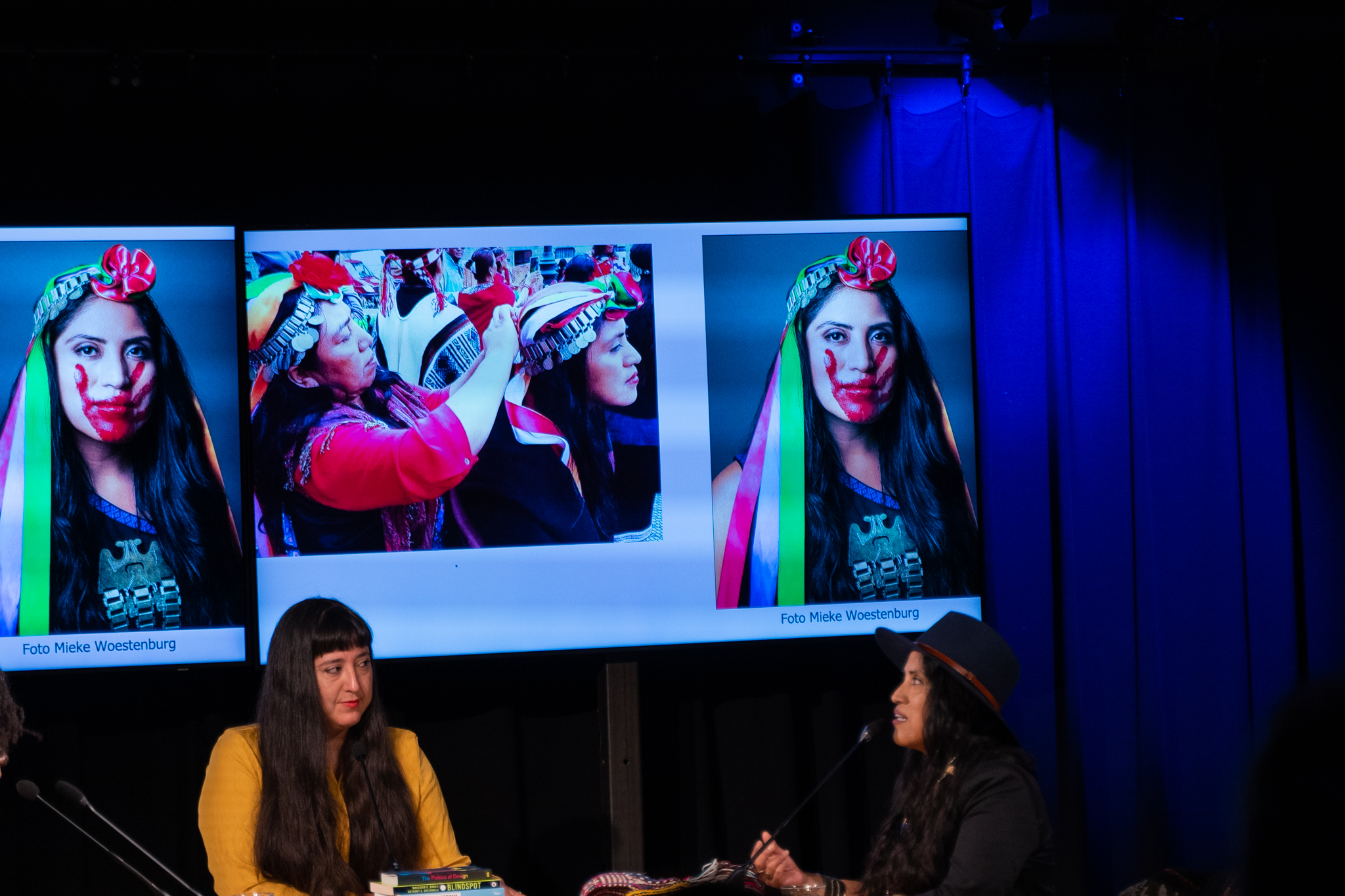Last Monday, on September 19th, the Designing Cities for All programme series ‘Decolonising x Design’ kicked off at Pakhuis de Zwijger with its first episode titled “Once Upon a (Colonial) Time…”. At the core of the DCFA programme series is the need to include all perspectives in the design process. In this triptych, the focus is on how the forces of colonisation have led to the erasure of stories from marginalized groups. To decolonise the design process, it is critical to give voice to those who have been silenced. We aim to highlight the importance of storytelling, in both the past and present, in order to foster healing, connection, and ultimately, progress toward a decolonised future.
Storytelling and identity are intrinsically linked. We spend our childhoods hearing stories, using them to connect with others. But, perhaps most importantly, we use stories to learn about ourselves and where we fit into the world. Thus, we see the power of representation in these stories. What does it do to someone’s self-identity if all they experience are stories with the same archetypes: ones that are Eurocentric, heteronormative, white, male, able-bodied et cetera? Or, what happens if all someone experiences are stories being told inaccurately in order to fit into these archetypes?
The programme triptych ‘Decolonising x Design’ aims to address these questions, as well as to highlight the voices of those with whom these questions may resonate. Put together by the Designing Cities for All team, the objective is to emphasise stories and voices that colonization has either tried to erase from history or has reframed in a way that praises the forces of oppression. This process of illuminating works to combat the erasure that marginalised groups have faced throughout history. These tales do not align with the ideals imposed by colonisation; they are tied to the experiences of Indigenous Peoples, LGBTQIA+ communities, enslaved people, and other groups that have been and continue to be pushed to the margins of society.The aim of the broader DCFA programme, which is to truly design systems and spaces for and with all, can only be realised if there is space for these stories, and therefore, perspectives of all.
In the first episode of this series, ‘ Once Upon a (Colonial) Time… ‘, the four speakers, Danick Trouwloon , born and raised in Curacao and writer/copy editor of 6 ISLANDS zine , Daniela Ortiz , an artist and militant living and working in Peru, Geoffrey van der Ven , a Dutch-Nigerian spoken word artist, and Chautuileo Tranamil , a Mapuche-Pewenche fighting for the rights and well-being of Indigenous People, came together to bring their own stories of colonisation and identity into the broader conversation of erasure, addressing religion as a colonising weapon, erasure of African queer histories , European migration control systems and more. These themes all contain erased stories. Not only is there a fight for representation in these stories, but there is also a battle for accuracy, for stories to be told from the perspective of the people they involve, not from that of those in (colonial) power. To amplify their lived experiences will quite literally reshape history as it should be; as it truly happened.

Geoffrey van der Ven performing a fragment of his poetic performance ‘It’s Not New’ © Pakhuis de Zwijger | Picture taken by Faezeh Mohammadi
The second episode of the triptych, ‘ The Past is Now ‘, will take place on September 26th at Pakhuis de Zwijger. As the title suggests, the episode focuses on how colonial pasts shape the present. Also, this episode reinforces the idea that colonisation is not a thing of the (distant) past. It is an ongoing process that infiltrates our present and threatens the future, and it requires an evolving dialogue.
In keeping with the idea that the past impacts our present, the third and final episode on the 10th of October , ‘ Crafting a Shared Future ‘, is aimed toward both collective healing and also building a decolonised future reshaped to include all living beings and their stories. After hearing stories of the past and how they impact the present, the conversation will shift toward how we can work together now to create this future. That is not to say that turning to the future implies forgetting or burying the colonial past and present. It is about learning how to have space for colonisation and what it has inflicted, while also working towards a future that is just for all.
Finally, the objective of this series is not to find ’the answer’ to how we can decolonise design. The truth of this conversation is that the work is never truly done; it is an ongoing journey, in which the fight for representative and accurate stories continues. To do this, we must continue making space, having these conversations, and moving one another and ourselves towards a decolonised future. Like the content of this series, the weaving of the past, present, and future speaks to the truth of human existence. We are a culmination of everything that has happened, is happening, and will happen. It is always necessary to make an effort to understand how this manifests differently from group to group, and even from individual to individual.
These differences can offer an opportunity for connection and unity – but how? A participant in the audience of the first episode posed this question to the speakers, which started a discussion on how storytelling and sharing experiences can spark self-discovery in each other. Invited guest Chautuileo Tranamil so eloquently added to this: “The path for liberation can be something we all join – I invite you so much to join mine.” There will never be a conversation that undoes the past, but what we can do is create space to share stories, listen to one another, and join each other’s path for liberation.

© Pakhuis de Zwijger | Picture taken at Faezeh Mohammadi
Equally important to making sure everyone has space to share stories is the need for everyone to listen to these stories, not just those who endure the effects of colonisation. Those coming from groups that have benefited from colonisation have a responsibility to hear these stories and acknowledge a version of history that looks and sounds different from what they were taught. For people who fit into the archetypes that history has valued, it can be uncomfortable to hear accounts that challenge those archetypes, and it should be uncomfortable. It’s not enough to make room; everyone must also acknowledge their possible privilege as a result of others’ oppression. Changes in perspective are needed, and it is these changes that will move us forward toward a decolonised future.
Decolonising the future calls for redesigning the narrative. Design is everywhere, as are the ongoing consequences of colonisation. When it comes to decolonisation, it is critical to understand how it has infiltrated design and how design has come to not only benefit those in power but to continually oppress marginalized groups. We have a duty to recognize both how the design of our systems and discourse reflects values of colonisation, as well as how we can redesign them. Only this way, we can truly learn to design for all.
Are you excited for, and interested in the Designing Cities for All programmes? Sign up for the Designing Cities for All newsletter here to get informed about future programmes and activities!













